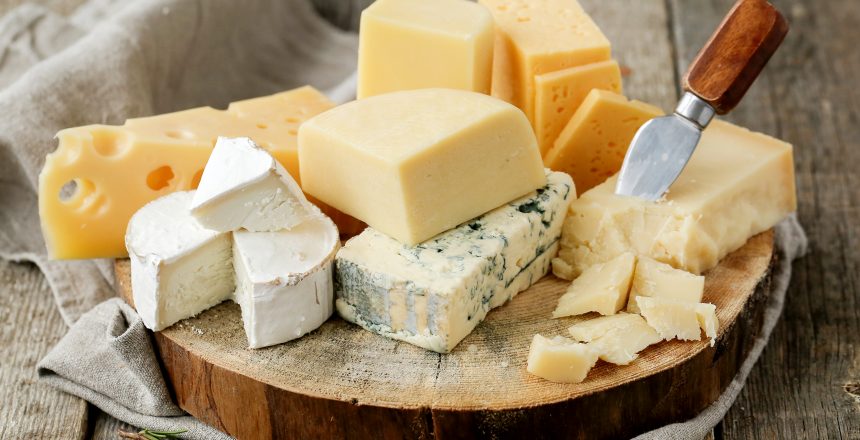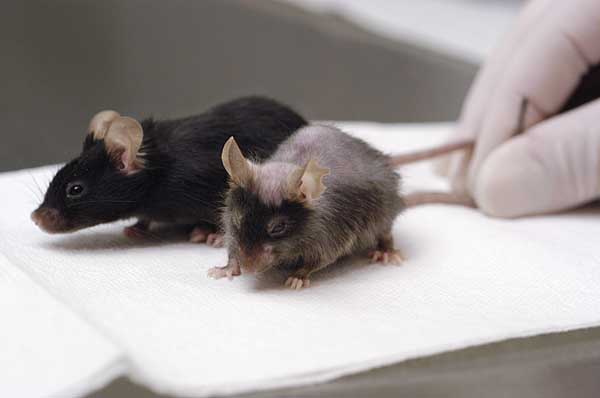Health authorities and dietary guidelines have told us for years to avoid high-fat animal foods like cheese, butter, and eggs. Science, however, is catching up to the fact that these ancestral foods are healthy.
High-fat dairy for better health
The latest research bombshell showed that there was no association between dairy fats and ill health. Serial measures of circulating biomarkers of dairy fat and total and cause-specific mortality in older adults: the Cardiovascular Health Study.
It also showed that higher intake was associated with a 42% lower risk of stroke.
Of course, correlation doesn’t equal causation, weak epidemiology, etc.
But if dairy fat caused cardiovascular disease or other chronic disease, we would see an association. And we don’t.
High-fat dairy foods are also associated with a lower rate of colon cancer. “Each increment of 2 servings of high-fat dairy foods/d corresponded to a 13% reduction in the risk of colorectal cancer.”
High-fat dairy like cheese and butter is associated with less obesity.
The observational evidence does not support the hypothesis that dairy fat or high-fat dairy foods contribute to obesity or cardiometabolic risk, and suggests that high-fat dairy consumption within typical dietary patterns is inversely associated with obesity risk.
So, cheese, butter, cream, yogurt, and other high-fat dairy products do not cause cardiovascular disease, and may protect against colorectal cancer, stroke, and obesity.
Eggs are healthy
Our establishment has also demonized eggs. Is there any basis for their claims that eggs are n ot healthy?
There is no association between egg consumption and risk of type 2 diabetes. Despite what the “plant-based” advocates will tell you. Current evidence suggests that there is no cause for concern regarding eggs and diabetes.
In type 2 diabetics on a weight-loss diet, consumption of a high amount of eggs did not adversely affect cardiometabolic markers.
Other studies have found that eating eggs improves cardiometabolic markers: insulin sensitivity and lipid markers were better when eating eggs.
Eating eggs increases HDL (“good”) cholesterol.
Why have we been mislead?
Denigrating cheese, butter, and eggs came about as a natural consequence of the establishment denigrating saturated fat, of which high-fat dairy products contain a lot, as do eggs.
But as we now know, saturated fat does not cause cardiovascular disease.
It all started with Ancel Keys and others trying to find out what was causing the heart disease epidemic.
But, as Nina Teicholz has argued, Keys was not only mistaken but was dishonest.
Cigarettes, sugar, and seed oils are arguably far more responsible for heart disease and all the other chronic diseases we have now. We figured out cigarettes, but seed oils and sugar are still given a pass.
Health authorities won’t embrace low-carbohydrate diets, or diets high in animal foods, because it would ruin their saturated fat narrative. They care more about never admitting that they were wrong than about your health.
Conclusion
For good health and protection against obesity, cardiovascular disease, and cancer, eat cheese, butter and eggs.
Also yogurt and sour cream, and other high-fat dairy products.
Eat eggs.
Also meat and fish.
Do not eat ultra-processed foods, which contain the deadly combo of seed oils, sugar, and refined grains.














41 Comments
Unfortunately, we are still being misled. Some folks on some of the internet health forums I read are touting this new study as “proof” that dietary fat is the cause of obesity (and that low carb diets therefore do not work for weight loss). There are at least a couple big problems with this study (and probably more….I have not reviewed it closely yet): 1) the study was done on mice, not humans; and 2) I believe the fats they fed the mice were at least partly sunflower oil, which is not exactly a healthy fat. If others get a chance to review the study (including you, P.D.), I would be interested in your take on it. Here’s the link:
https://www.cell.com/cell-metabolism/fulltext/S1550-4131(18)30392-9
Rob: If I may- that study was done on mice, not humans. Mice are not adapted to eat as much fat as we are, and therefore will get fat.
You have a typo here:
“Why have we been mislead?”
should be misled.
Misled only in the USA and English speakers in the Philippines..All other English speaking countries write ‘mislead’.
Not so. In UK English also, ‘misled’ is the past tense of the verb ‘mislead’.
Wow the dairy and meat industry is really desperate! This is a load of bullshit and probably paid for by those Industries.
Where do I get my check?
Was thinking the same thing why should anyone believe this recycling of misinformation to keep hardworking people lining money hungry industries, alot more young people are going for a
Vegan whole food plant based diet seeing the benefits it has on one’s health and environment not to mention the animals that are saved.
I know quite a few vegans who, if they are healthy, certainly don’t look so. They look years and years older than they are and a few of them look like they’re next to death’s door.
Most qualified studies from universities like Harvard and Yale have been saying for years now that a total.vegan diet is no different than having an all meat diet. They both suffer the same amount of deficiencies. The people who have the longest life spans are the people who eat in moderation and stay away from all processed foods. Vegans and vegetarians are just radical narcisists. You don’t see meat eaters out protesting and ranting about others eating habits. Keep denying your body of certain foods is dangerous to your health and it is proven in the studies by these non-political entities.
All anyone has to do to find out what is actually good or bad for you just need to go to a nutritionist doctor. They know food WAY better than the other doctors, who know human biology, but not food.
Still awful for animals though.
You might want to consider a more balanced view. Have you ever worked on a (fairly traditional) farm or raised chickens near predators? If I’m a cow or a chicken I will happily trade milk and eggs in return for protection from predators and medical care when I need it. I found the farm I worked on to have a sense of peace and beauty and I would recommend visiting one if you have the chance.
Funny how there’s no mention of cholesterol anywhere in this
Why would there be? Dietary cholesterol doesn’t affect serum cholesterol, which in turn doesn’t cause heart disease.
One man’s story does not make scientific proof, but: Age 72, eaten eggs almost every day of my life. In the last decade, got rid of seed oils and their margarines. Never shied from meat or dairy.
Lipid panels that would make a twenty something cry in jealousy. And, as an indictment of the medical establishment, my doctor wanted to put me on a statin! I will be looking for a new doc.
Who paid for this stupid advertisement…the dairy industry…go chug a pound of butter you idiots and see how good you feel after that. Just about the most ridiculous article I have read today.
https://www.peta.org/blog/6-olympic-champions-probably-no-clue-vegan/
High fat dairy contains vitamin K2, which is very important for heart health; (and it is ONLY in high fat, not in low fat dairy). Unfortunately, the dietary guidelines really messed things up considerably; by not eating the right fats, not only were we not getting enough K2, but we were also lacking all the other important fat soluble vitamins- (like vitamins D, A and E). The study of nutrition is still basically in its infancy, and by jumping to conclusions and making recommendations before enough was known, it has caused more harm than good.
Man, this breaks my heart. It’s sad people who really aren’t an authority on nutrition who cherry pick articles to match what they feel is right. Sit with a doctor that actually treats people and reverses their disease based on eating whole foods and plant based. It is the only diet ever proven to reverse disease. It can do more than any drug out there. But people still continue to be prejudice and lead to confusion because they refuse to even consider the possibility that plants can really save lives.
Plant-based diets: no.
Eating a lot of high fats will always cause obesity which will lead to many health problems.
Also dairy contains casomorphines. This is because it’s a cow mother’s milk intented for calves. It helps to calm babies down and help them grow. I feel like this article was a justified piece pulled out of someone’s ass.
Intended*
Eating a lot of high fats will always cause obesity which will lead to many health problems.
Inuit traditionally lived almost entirely on fats and had no obesity, no diabetes, no heart attacks. Only when they move into government housing and begin eating SAD do those problems show up.
Please explain this.
This study goes against almost every other current study ever done and lacks much logic and basic understanding of nutritioal understaning.
Do some research online and you will see this study has no true value
Do try to keep up with current science, David.
Bugger ! You have stirred the possum with the vegans here PD.. But I guess they need it occasionally to give them an opportunity to rethink things based on the the current evidence.
Yeah it’s weird. They can only say something along the lines of “everyone knows that’s wrong”, or “you’re in the pay of meat and dairy industries” when faced with evidence contrary to their beliefs.
I find it fascinating to observe how emotional they are in these interchanges.
Yes, all emotion, very little logic. Insults too.
They came in droves! Basically every comment was regarding how wrong you are. I imagine one person shared the article with the rest of them and they all felt the need to comment.
You must be getting linked more widely, I do not recall this sort of emotion two years ago. A lot of people still have an emotional link to 1960’s research? The vegetarian / vegans are like cultists whose guru has been insulted.
Keep up the good work!
Thanks, Thinker. I’m not sure what happens but it looks like I may get picked up by Google News or some type of Google alert. That happened when I wrote about “plant-based” and the traffic literally shut down my site. I believe something similar happened with this article.
Mr Mangan,
Your article essentially discusses foods that have been consumed in quantity across Europe for centuries successfully and with populations that were not obese or generally fat throughout their lives, so I’d say that it’s on the ball as per usual. It’s funny how foods that worked well for so long have been so demonized in the last 100 years in-spite of this.
I’d also ignore all the vegetarian critics and their emotional breakdowns too!
Regards
Thanks, Dave. Yes, foods that humans have eaten for a long time couldn’t be responsible for modern diseases.
https://www.ncbi.nlm.nih.gov/pubmed/30022800
What are your thoughts.
No mention of ultra-processed foods, with sugar, seed oils, and refined carbs, consumption of which has increased vastly in China and the rest of the world.
anyone who has read the book “Cholesterol Myths” knows that this story is not a big surprise….The Masai of Africa & the Samburu eat 3-10 lbs of meat per day and had absolutely no atherosclerosis when George Mann studied them in the 50’s or 60’s. The Masai only consume meat, milk & blood and run every day. They are violent, raiding neighboring tribes and capturing females and livestocks but the point is that these 2 tribes utterly decimate the cholesterol/lipid hypothesis. Vegan do not read books unless that are certified post-fact friendly. just like horses wearing Blinders down 6th avenue
Just some food for thought to support a low carb, high fat and protein diet.
https://www.biologicalpsychiatryjournal.com/article/S0006-3223(18)31793-1/fulltext
BCAA supplementation or high protein diet has been used in mouse models (24) and human patients (31) with BCKDK deficiency to successfully reduce ASD (autism spectrum disorder) symptoms and improve cognitive function.
Looking through the literature, we see low carb, high protein being addressed as having value in ‘certain situation.’ We also know keto diets help with seizures.
On some level, parents of adhd boys (and I don’t think its adhd but rather the educational system- but that is another discussion) anecdotally report cutting sugar (ie carbs) helped their children.
In addition to these larger observational studies, there are several positives about dairy. It’s convenient: you get a good combination of protein and fat (and carbs if you drink milk) in a “small package.” It’s a good source for most vitamins and minerals. The amino acid balance is better than many other protein sources. It’s very low in iron and pufa. It has pre/probiotcs and other beneficial lipids.
High calcium intake (particularly from dairy versus supplements) has too many benefits/effects to list, but it influences blood pressure, intestinal health, clotting, body/liver fat, metabolic rate, immunity. Several (all?) of those things are related to parathyroid hormone. However, I don’t know if there are benefits of going from ~1g per day (rda) to something like ~4g, which would be roughly the intake of traditional cultures that rely heavily on dairy. Some people seem to be worried about Ca/Mg being too high, but I don’t think that is a problem as long as Mg intake isn’t deficient.
Thank you for your continuous great information. I gave up eating grains and sugar 11years ago at age 60. Started eating 12 oz animal protein every day divided into three meals, and along with 1 lb vegetables (low glycemic) every day for lunch and 24 oz vegetables for dinner, 8 oz fruit breakfast as well, I have maintained a 40 lb weight loss for 10 1/2 years, take only eye drops for glaucoma but no other medications nor supplements. My husband raves about my figure and skin and dental visits are almost pleasant now that there has been a tremendous lessoning in inflammation in my gums. My body feels peaceful and calm, with a great sense of well-being. I was on my way in following my father into type 2 diabetes. I was a lifelong sugar addict which turned into alcoholism. I’m in recovery now for 46 years, let go of cigarettes 45 years ago.
I’m totally committed to eating grain and sugar-free with also eating the best grassfed beef, wild fish, organic eggs( have chickens), raw milk and yoghurt and grassfed butter. Also love growing my own vegetables with a huge abundant garden that also connects me to nature. I tell my younger friends and relatives to not wait until you are 60 to give up the grains, sugars, etc., as a much better quality of physical experience awaits.